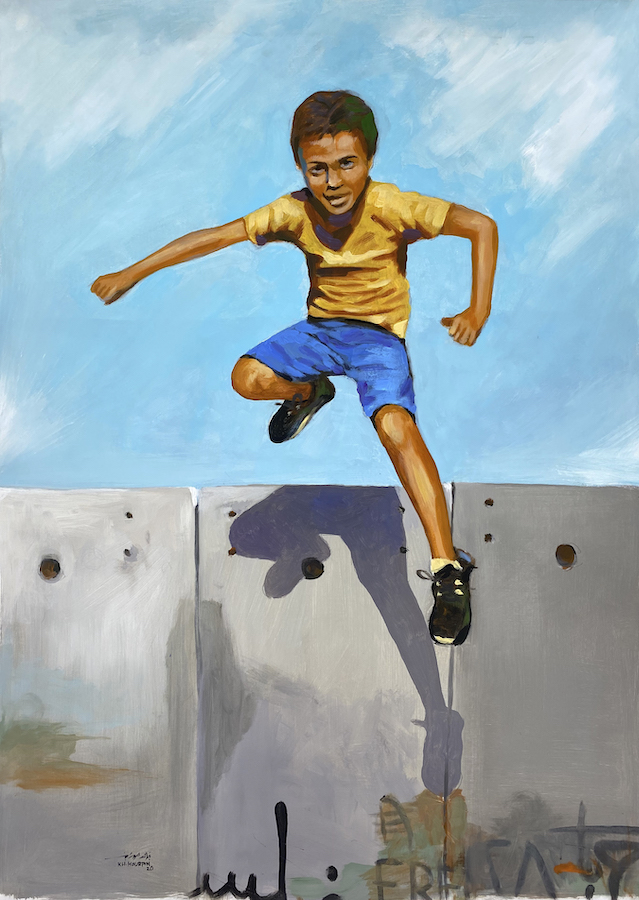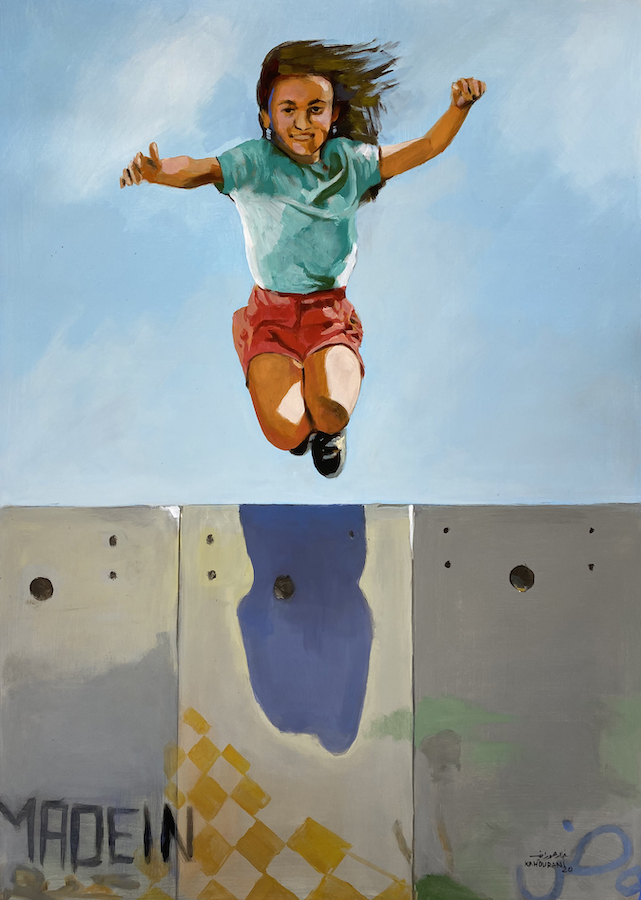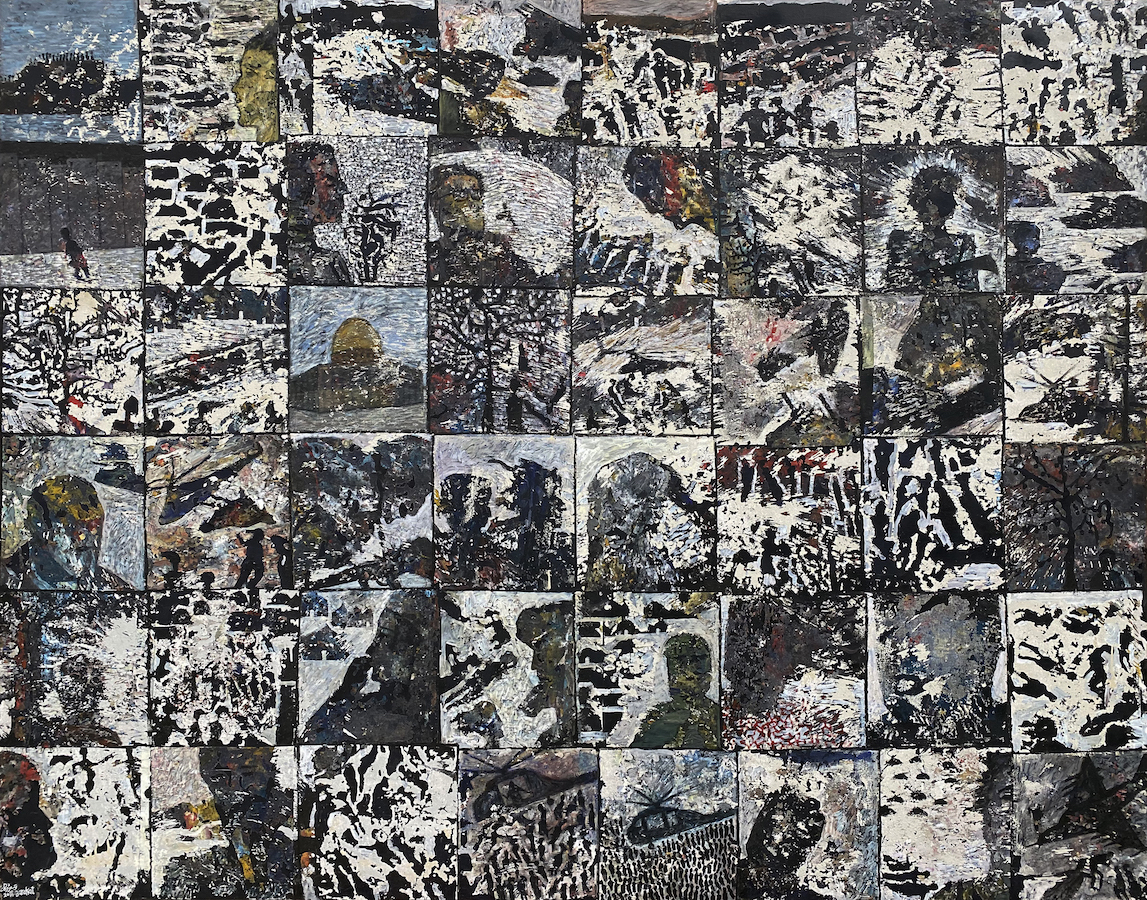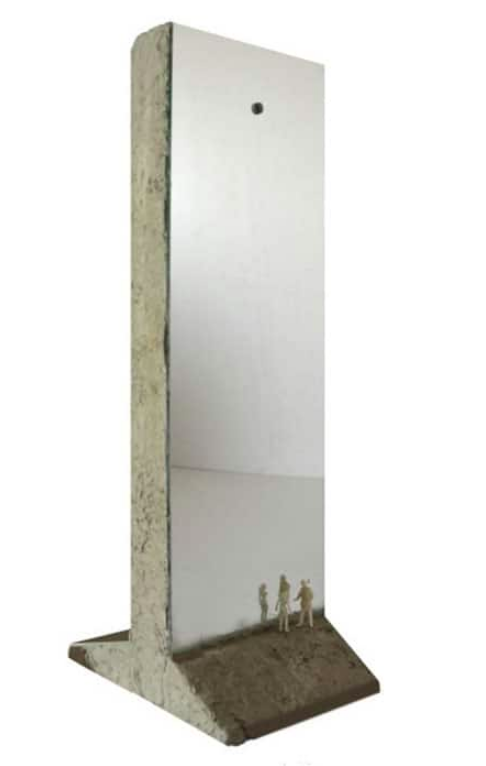DUBAI: The Ramallah-based Zawyeh Gallery is currently showing a group exhibition of Palestinian artists at its space in Alserkal Avenue, Dubai. “Palestinian Art: Resilience and Inspiration” runs until September 30. It contains works by a number of Palestine’s most influential artists. The press release states: “In a time of defiance and instability in the region, the artworks deliver a message of resilience in the face of all odds.”
“We understand the importance of initiating new platforms for Palestinian art and exposing it to a variety of audiences,” Zawyeh’s director Ziad Anani told Arab News. “We know that there is a growing demand for Palestinian art in the UAE. It is very important for us to get the world to know about Palestinian artists. In Ramallah, there is barely a market. People are not interested in buying artworks because financially they are not capable — although they love the works we exhibit.”
Anani added that he recently launched an online store selling prints from a number of Palestinian artists. “They got very excited because their works can reach more people and more homes across the globe,” he said. “We believe in investing in creativity and in supporting Palestinian artists as well as projecting the spirit of artistic production in Palestine to the wider world.”
The current exhibition, Anani explained, is deliberately eclectic in terms of mediums — “mud, leather, wood, concrete, glass, straw, charcoal, henna and more” — but while the medium may vary, they all share that message stressed in the press release: “resilience.” It’s tough making a living from art anywhere in the world, of course, but in Palestine the odds are even less in your favor. Nevertheless, as “Palestinian Art: Resilience and Inspiration” shows, there is some dazzling work coming out of the country.
Here, we highlight a few selected works from the show.
KHALED HOURANI


‘Hasan’ and ‘Zeina’
Hourani is a prominent figure in the Palestinian scene not just as an artist, but as a curator and critic too. These two works are taken from a series on show in Dubai. Each image from the series shows a child jumping over the Israeli apartheid wall in the West Bank. “Hourani focuses on the young generation, who take upon themselves to challenge occupation regardless of what happens in the political arena,” reads the exhibition brochure. “These are the same kids who are seen in demonstrations on the streets challenging heavy Israeli artillery. The children of the future.”
SLIMAN MANSOUR

‘Revolution Was The Beginning’
Mansour is one of Palestine’s most respected artists. Alongside fellow members of the ‘New Vision’ art movement, he boycotted Israeli art supplies during the first Initifada in the 1980s, instead using mud, henna and other local materials to create his work. He was born in 1947, so — unsurprisingly — his work is centered on life under occupation and the concept of ‘land.’ This masterful piece tells the story of Palesting since the Nakba of 1948 (it should be ‘read’ from right to left, beginning with a refugee camp threatened by a storm and ending with a young couple marching under the Palestinian flag. The Dome of the Rock and olive groves are two crucial elements of the painting, which also incorporates “several direct symbols reflecting the right of return, imprisonment, the Apartheid Wall, and martyrdom.”
TAYSEER BARAKAT

‘Light in the Dark’
One of two works from this series of Barakat’s that feature in the exhibition. The Gaza-born, Ramallah-based artist is one of the most prolific in Palestine, and has said the dark colors that dominate his work “reflect the hardships of our time and our present life.” His abstract “Light in the Dark” works “tell the story of people in confinement yearning for freedom,” according to the brochure. Each consists of several windows featuring mainly black-and-white images and depicting a different detail of life under occupation. “One can notice a competition between the black and the white, a fight for domination in each square, as if the artist is redeeming the ‘white’ from a well of lost memory (black) in an attempt at documentation for future generations.”
WAFA HOURANI

Multi-disciplinary artist Wafa Hourani studied experimental cinema in Tunisia and has gone on to work with music, poetry, performance, sculpture, photography, installation, and film, among other media. This piece — a mirror set in a slab of concrete taken from the Israeli apartheid wall, predicts “the emergence of a Palestinian political party who places a large mirror along the Apartheid Wall making it disappear.” It is not simply a criticism of Israeli policy, either, but also of “the Palestinian internal political situation, and raises questions about the beautification of the wall as opposed to confronting the political reality.”
NABIL ANANI

"Demonstration #2"
One of the founders of Palestine’s contemporary art movement, Anani is a painter, sculptor and ceramicist who, like Mansour, turned to local materials including leather, henna, wood, beads and copper rather than use art supplies from Israel. In this painting — one of a series — the Ramallah-based artist “reflects the centrality of protest against the occupation in the lives of Palestinians.” He does so by presenting the demonstration as spontaneous, and by including everyday moments — kids on their parents’ shoulders, couples hugging — as well as a glimpse of a domestic animal (in this case, a dog). It is, the brochure says, “as if the artist is trying to include various elements of daily life in these communal actions.”



































